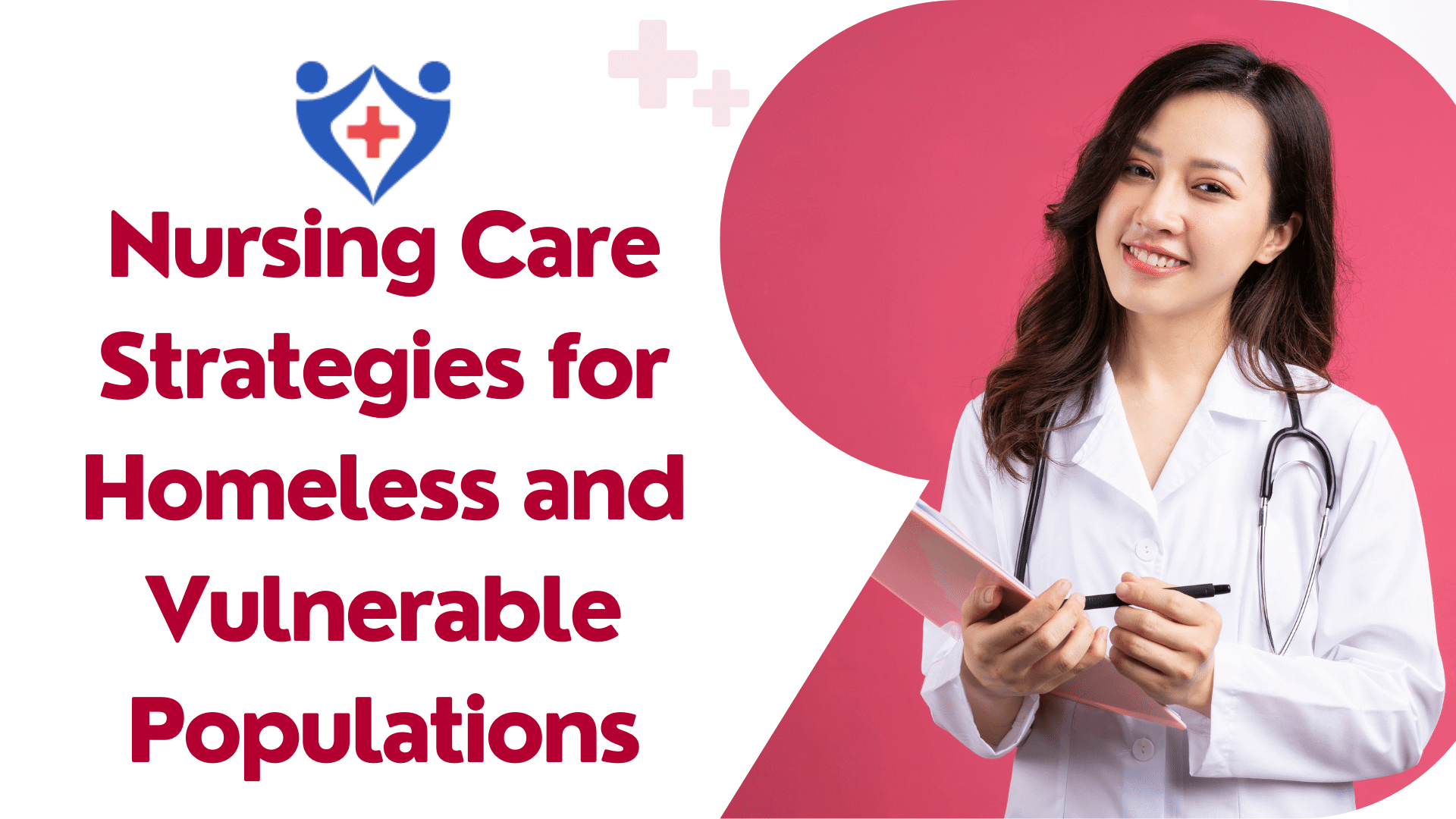In the midst of bustling cities and serene suburbs, there exists a population often overlooked and underserved: the homeless and vulnerable. Within this demographic, individuals face unique challenges, including limited access to healthcare and nursing services. As frontline caregivers, nurses play a pivotal role in addressing the healthcare needs of this population. In this comprehensive guide, we delve into effective nursing care strategies tailored to the specific needs of homeless and vulnerable populations.
Understanding the Needs of Homeless and Vulnerable Populations
Defining Homelessness and Vulnerability
Homelessness encompasses a spectrum of living conditions, ranging from individuals sleeping rough on the streets to those residing in temporary shelters or transitional housing. Vulnerability further exacerbates their plight, encompassing factors such as poverty, mental illness, substance abuse, and lack of social support.
Healthcare Disparities and Barriers to Access
Homeless and vulnerable populations face significant barriers to accessing healthcare services, including financial constraints, lack of insurance, transportation challenges, stigma, and distrust of the healthcare system. These barriers contribute to a cycle of untreated medical conditions, exacerbating health disparities and reducing overall well-being.
Table: Overview of Nursing Care Strategies
| Nursing Care Strategy | Description |
|---|---|
| Outreach and Engagement | Collaborate with community organizations and outreach teams to establish trust and rapport. |
| Holistic Assessment | Conduct comprehensive assessments considering physical health, mental well-being, and social factors. |
| Trauma-Informed Care | Create a supportive environment recognizing the impact of trauma on health and well-being. |
| Harm Reduction Strategies | Implement initiatives such as needle exchange programs and naloxone distribution to reduce harm. |
| Health Education | Provide education on chronic disease management, sexual health, nutrition, and hygiene. |
| Care Coordination and Advocacy | Assist with appointment scheduling, medication management, and coordination of care. |
Nursing Care Strategies
1. Outreach and Engagement
Engagement is key to providing healthcare to homeless and vulnerable populations. Nurses can collaborate with community organizations, shelters, and outreach teams to establish trust and rapport. Mobile clinics and street medicine initiatives bring healthcare directly to those in need, reducing barriers to access.
2. Holistic Assessment
Comprehensive health assessments are essential for understanding the complex needs of this population. Nurses employ a holistic approach, considering physical health, mental well-being, substance use, socioeconomic factors, and social support networks. This enables tailored care plans that address underlying issues contributing to poor health outcomes.
3. Trauma-Informed Care
Many individuals within homeless and vulnerable populations have experienced trauma, including domestic violence, childhood abuse, and military combat. Trauma-informed care emphasizes safety, trustworthiness, choice, collaboration, and empowerment. Nurses create a supportive environment that recognizes the impact of trauma on health and well-being.
4. Harm Reduction Strategies
Substance use disorders are prevalent among homeless populations, often complicating healthcare delivery. Nurses implement harm reduction strategies, such as needle exchange programs, naloxone distribution, and education on safer substance use practices. These initiatives aim to minimize the negative consequences associated with substance use while respecting individuals’ autonomy and dignity.
5. Health Education and Promotion
Empowering individuals to take control of their health is paramount. Nurses provide health education on topics such as chronic disease management, sexual health, nutrition, and hygiene. Interactive workshops, peer-led support groups, and one-on-one counseling sessions foster health literacy and promote self-care behaviors.
6. Care Coordination and Advocacy
Navigating the healthcare system can be daunting for homeless and vulnerable individuals. Nurses serve as advocates, assisting with appointment scheduling, medication management, referrals to specialty services, and coordination of care across multiple providers. By addressing social determinants of health, nurses advocate for policies and resources that promote health equity and social justice.
Conclusion
Nurses play a vital role in addressing the complex healthcare needs of homeless and vulnerable populations. By employing outreach and engagement strategies, conducting holistic assessments, implementing trauma-informed care, and advocating for policy change, nurses can make a meaningful difference in the lives of those facing homelessness and vulnerability. Through compassionate and evidence-based care, nurses uphold the principles of equity, dignity, and justice for all individuals, regardless of their socioeconomic status.

